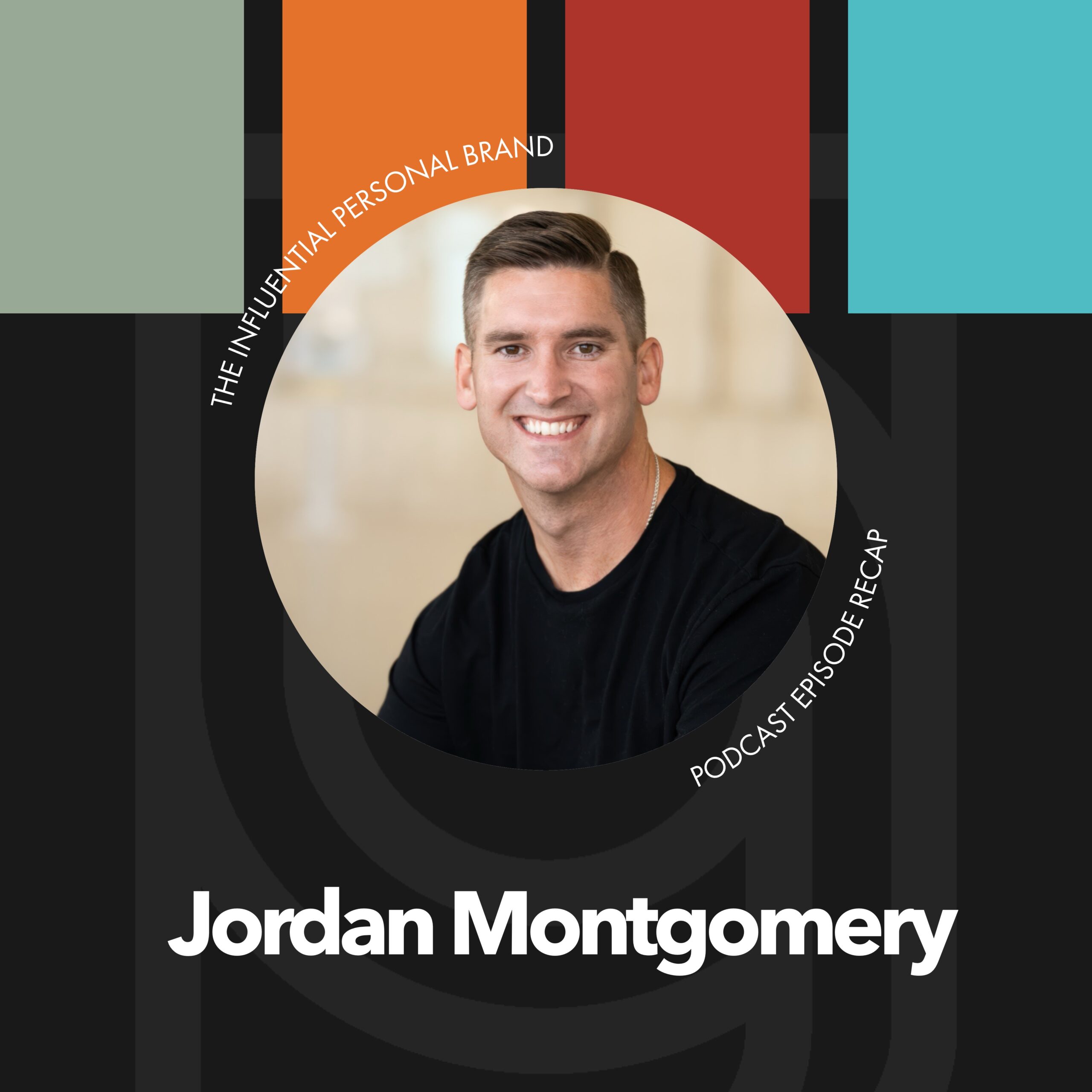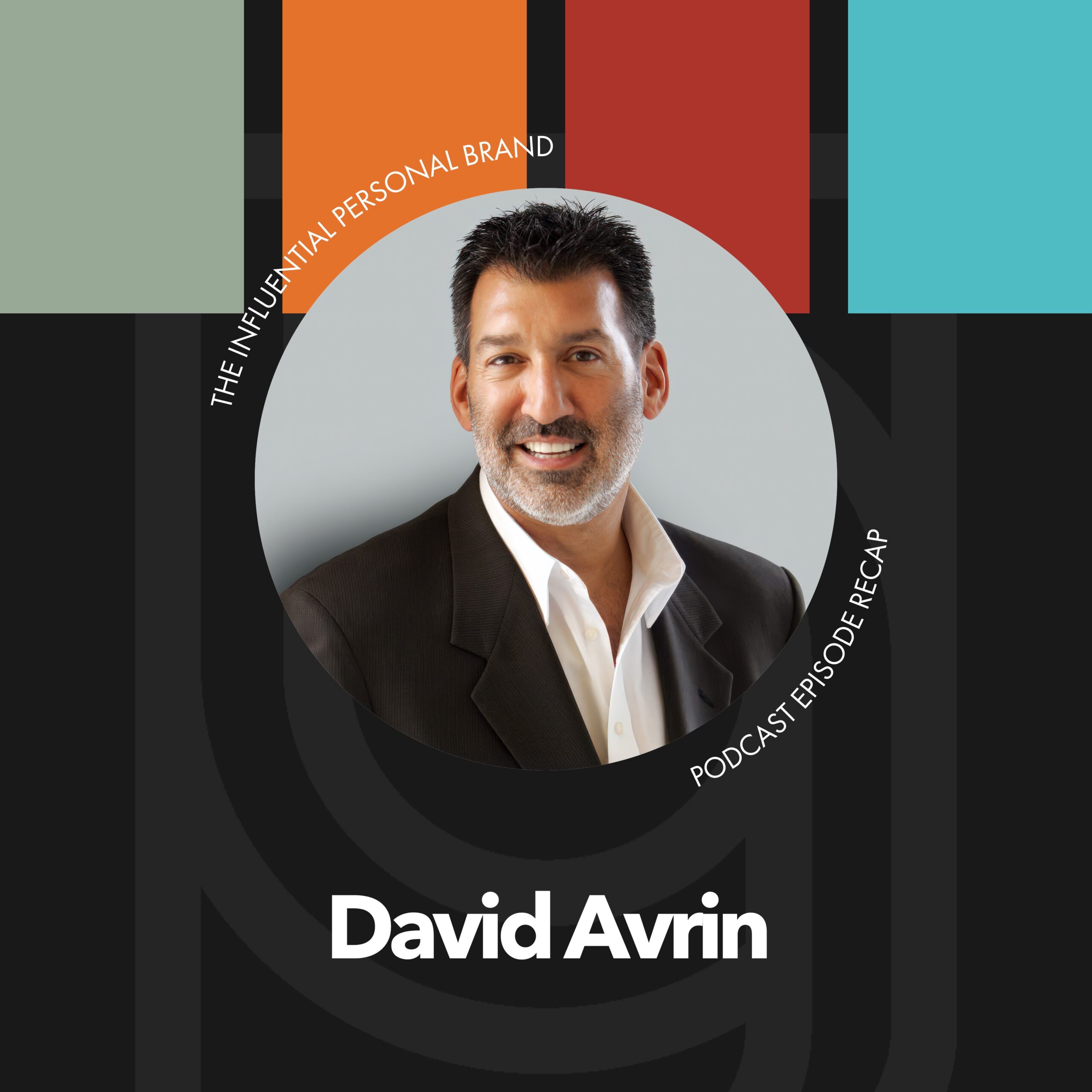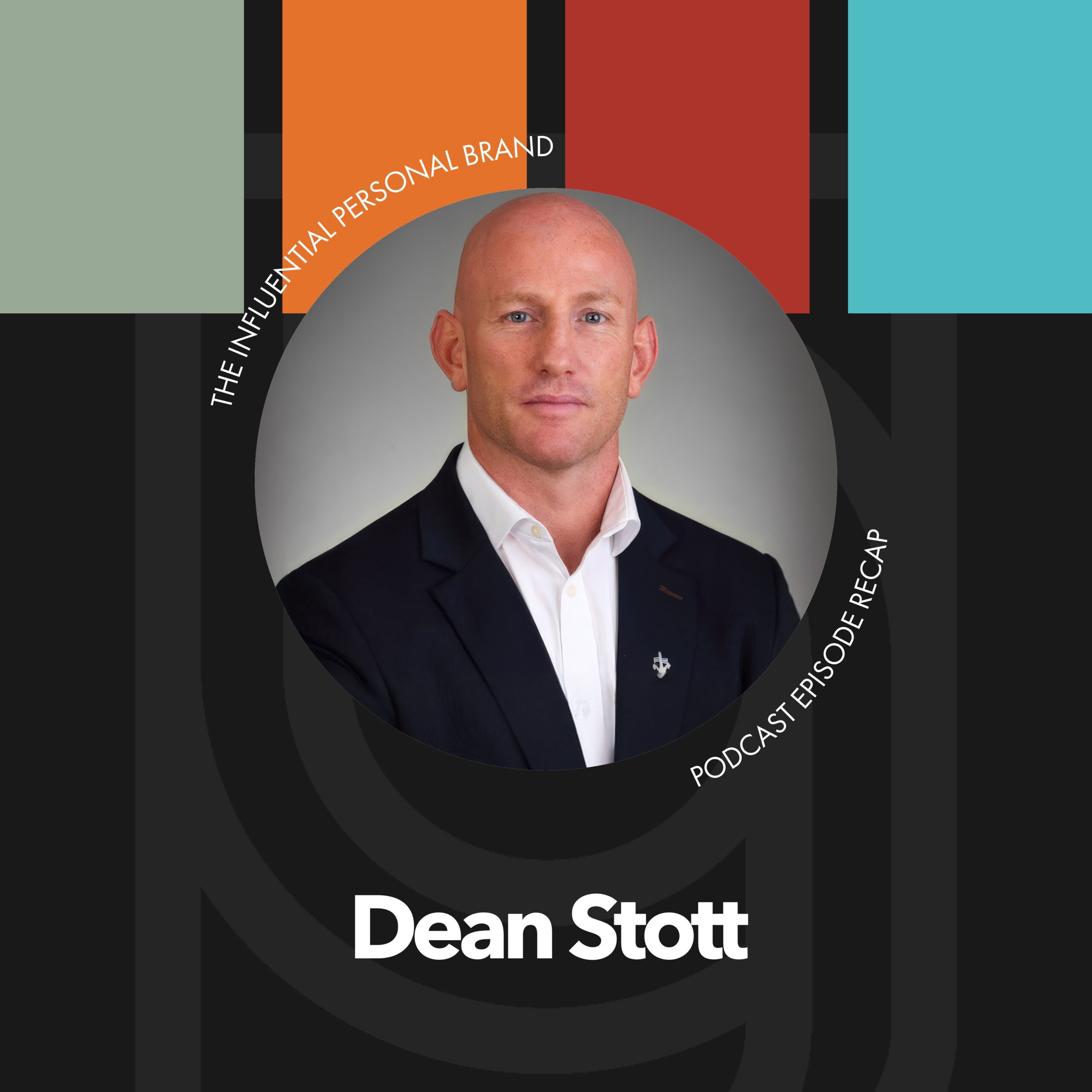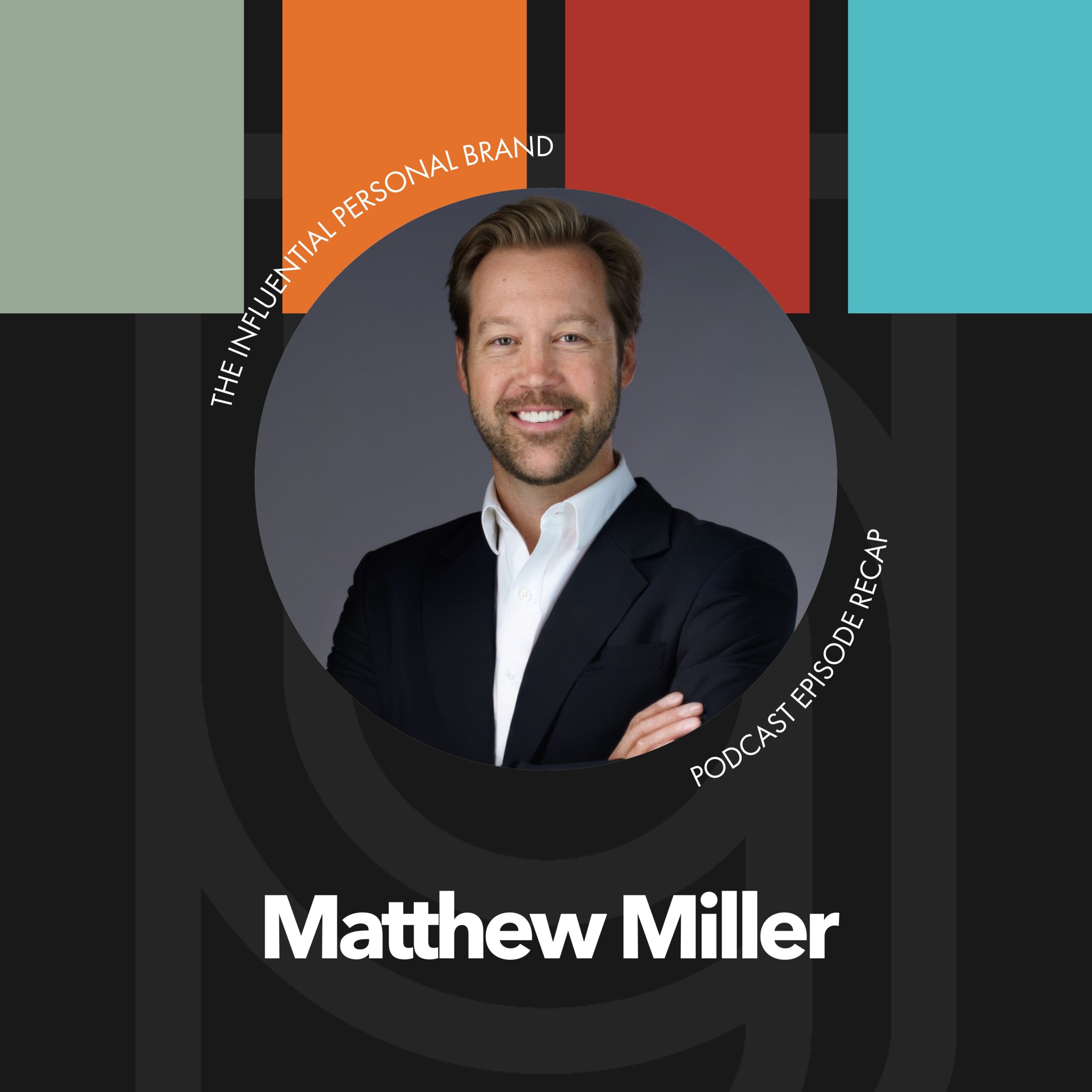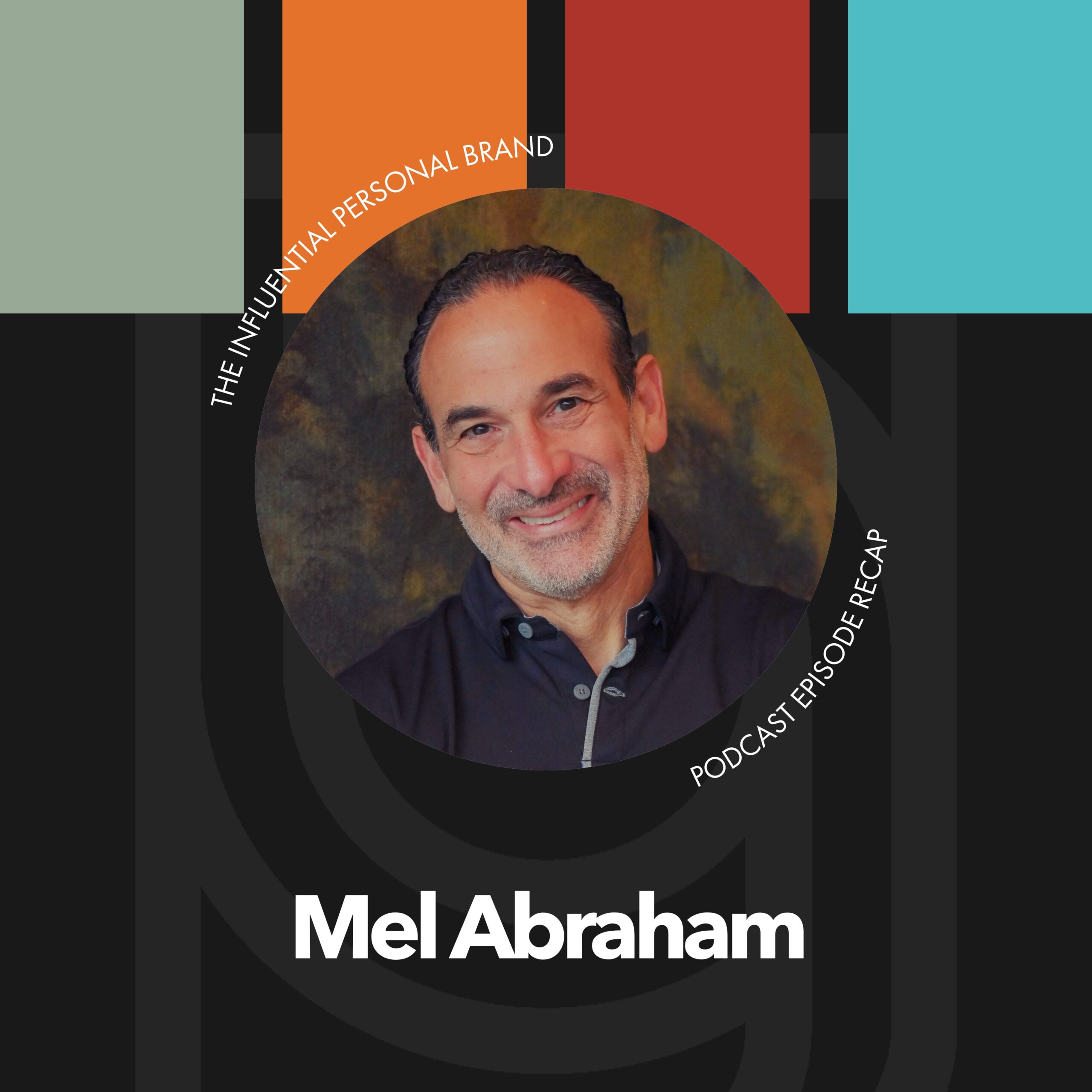Hey, welcome to this recap edition of the influential personal brand podcast. It’s your man, Rory Vaden breaking down the interview with my good friend, Chris Ducker. I’m rolling so low on this one agent. Couldn’t be here, but I’ve known Chris for so long that I think it’s apropos that I got a chance to learn from him. And to just share with you, I think some of my highlights from somebody who I consider a friend, and I think that the first thing that Chris said that stuck with me was super simple and it’s related to something that we say ish, you know, like we, we, we talk about this concept a lot, but there was something about the way that he said it, that really,
Really resonated with me in, in a fresh way. And, and that was this, he said, when you’re building your personal brand, just focus on becoming someone’s favorite on something, right? Like, so we talk about finding your uniqueness. We talk about you know, staying, staying focused. If you have diluted focus, you have diluted results. So we kind of talk about it, like from the lens of you, of like you doing the work and our, our, our brand DNA experience is all about taking someone through these exercises to figure out what is their uniqueness. Right. But when he said it that way, it’s almost like coming at it in the reverse, it’s thinking about from your customer or from your, from your prospect’s perspective, what could you be someone’s favorite resource for, I mean, that’s such a good question. We should probably consider adding that question.
I mean, he didn’t say it that way. He just said become someone’s favorite about something, but to, to, to translate it, I guess, to a practical question and you know, maybe, maybe we should actually include, this is it’s it’s so good is to say, what could I become someone’s favorite resource for that causes you to ask the question, you know, it’s another way of coming at your uniqueness, but it also has the kind of the entertainment aspect of it to be like, you know, what do I learn the passion question of, what do I love? What am I good at? What do I know so well that I could just, you know, I could teach it in a way that so many people would, would absolutely just love it because I, I love it. And I know something about it. So that’s a question that I would, I would encourage you to just maybe think about for the week, what is something that you could become someone’s favorite resource for and think about it, think about it as the consumer, right.
As you think about, okay, who is my favorite person to follow that has spiritual messages. Here’s, who’s my favorite person to follow that has financial information. Who’s my favorite person to follow with like, you know, technology tips. Who’s my favorite person to follow in my industry. Who’s my favorite person to follow on like you know, fitness and nutrition and right. Like we another quote of mine, not a, not a quote of mine. Another one of my favorite quotes is from a guy named Scott McCain, Scott McCain, as a, as a mentor of mine. And he’s a hall of fame speaker and a bestselling author and all that. And, and one of my favorite quotes from Scott McCain, as he says, mind, share precedes market share. So it’s almost like, you know, the human brain, it’s almost like, there’s like these it’s like a filing cabinet, right?
And so we have a file for like, who’s our accountant and who’s our doctor and who’s our eye doctor and all that stuff. And so it’s people want to be able to like put you in a file. They, they want to be able to like, when I have this problem, this is the person I call. So you, you want to reverse engineer that and go, okay, what is the thing that I want people to think of when they think of, when they think of this, they call me I I’m their favorite resource for it. I’m their go-to person on it. I’m going to occupy that space in their mind. I’m going to work to own that question and to become their favorite resource so that when they have a problem that they need solved, they’re immediately going to think of me, mind is share proceeds market share.
So but anyways, the way that Chris said it was become someone’s favorite about something. And I just thought that was super simple, but super fresh in a different way of thinking about this, all important idea of finding your, your uniqueness. The second thing that he mentioned, which I really love, just because we don’t talk a lot about it. Like we don’t talk about pricing. We haven’t talked a lot about it so far in the other episodes now we have one of our events, one of our topics is called building your revenue engine. And then in the revenue engine, you know, we teach about offer structure and pricing and how to lay out your offer in a way that gets people to buy, et cetera, et cetera. But a lot of our guests, we haven’t had very many guests on this show where that has kind of come up.
And one of the things that Chris said, which I think is a very salient, you know, important nugget that you, you might’ve skipped over, but I think it’s a really big deal. And it was a, it was a big reminder for me too, is he said we almost never discount things. We almost never discount things. And I find that to be a really important principle. Like I would actually consider that to be a core financial principle that we would, we would talk more about later on in like our eight figure entrepreneur curriculum and event, which is, you know, there’s certain financial ways of thinking that are really important. And I think discounting is one of the big mistakes that people make is they just get into this habit of discounting. They set this culture of discounting. You know, when you start to scale your business, you have salespeople and then salespeople think, Oh, I can just go out and discount stuff.
And I mean, think about this for just a second, about how negative, how negative discounting can be. Right. So generally speaking for many, many businesses are for most businesses, a 10 to 20% profit margin would be really good. So like, I mean, break even it’d be 0%. Right. And that’s hard to do a lot of most businesses never succeed because they they’re never able to break even. And 10% profit margin is like, okay, that’s healthy. And 20% is like, all right, you’re, you’re crushing it. Like you’re killing it. Right. So think about discounts. Think about like coupons. Usually, what, what do you think is the most common percentage that people give away when they discount? You know, usually it’s like 10% or 20%. Like now when you go to department stores and stuff, sometimes you’ll like, see deal for 30% off or whatever. Now, you know, that’s a totally different model than a personal brand, which is a professional service.
But even in service-based businesses, 20% can be very difficult to get to if you start having a staff and a team and you really start to scale a real business. So when you do a a 10% discount or 20% discount, what did you just do? You gave away the profits of the business. That’s what happened, like all of the work and the time and the energy that would have gone into creating a successful customer acquisition and making a sale and delivering a service and making a reasonable, healthy amount of profit. All of that disappeared with the discount. Now, when we give discounts, we think, Oh, 10% is not a big deal. Even when we get discounts, right? Like if I said, Hey, I got a 10% discount for you. You probably would be like, man, whatever. But when you put on your entrepreneur hat, when you put on your business owner hat, when you put on your CFO hat, when you put on your do I have resources to invest back into a team and to grow this thing, if I gave a 10% discount, I just gave away the profit.
I just, I literally gave away the whole financial reason of being in business. That means that every, all the work that we did to find customer, you know, find a prospect, introduce ourselves to them, make them know who we are, earn their trust, make a sale, deliver a product, make them happy. They have a great experience. We did enough to pay our team, pay our employees, pay the, you know, pay the government, pay whatever, and literally nothing left over. Right. So discounting is, discounting is extremely detrimental. Discounting long-term is extremely detrimental, which, you know, if you have to do it initially to get some customers and to build some credibility, you know, I guess you do that or did to build momentum around a book launch or something like that. But it is not something that can be a part of your core business for you to scale a truly successful long term enterprise.
So, you know, and now, and what he said, which I also appreciate is, so what do you do? What you do is you add on bonuses and you can add on incentives and you can, you can do promotions. You know, like if you’re trying to create urgency, you’re trying to get someone to action. What you do is you add on something, you add on some type of of a bonus, but you don’t discount the actual price of what you collect. And if you’re building a personal brand, that’s one of the most amazing parts about being in this space is that you can create a lot of digital assets, right? Like block two hours on your calendar record of, of some videos or have a long video training. And now you have this really incredible bonus that you can offer without compromising the profit margin of your business.
So that’s just not a lesson. We hear a lot. And I thought that was really good. And then the third thing which I always love. I mean, you’re just, I think you, you, I never get sick of tired talking about it, but again, the way that Chris said it, I thought was cool. He said, do the unsexy work? Do the unsexy work like so many people get into the personal brand space specifically because it’s like, it looks glamorous, right? Ooh, I have a book, I’m an author. I’m on stage. I’m leading a webinar. I have a lot of social media followers, you know, whatever I’ve got endorsements from all these people. And yet it’s like that, isn’t the job. I, it takes me back to an episode, another really great episode that we had a while back with David Avron, who truly is one of my most influential mentors in my life.
And he was talking about getting speaking gigs. And he said something on our interview that I’d actually never heard him say, or it never stuck with me. What Dave said is he said, you know, speaking is not the business. It’s getting the speaking gig, which is what the real business is. Everybody wants to be a speaker, right? Like being on stage speaking is the fun part, but that’s not really the business. The business is getting the speaking gig. And that’s what, that’s what you need to, you need to be willing to do the unsexy work. You have to take the stairs to, to use the metaphor and illustration of my first book. In fact, there was an interview. There was an interview in the take the stairs book, one of the ultra performers that we profiled. I’ll never forget this guy. I haven’t talked to him a long time, but he’s a total stud, his name is Chad Goldwasser.
And at the time he was like the number one agent in the world out of like 76,000 agents for, for Keller Williams worldwide. And we profiled him for the take the stairs book. And Chad said, you have to learn to fall in love with the daily grind. Not just deal with it, not just get by, not just like stomach it and be okay with it. The real measure is can you fall in love with the daily grind? Can you fall in love with the hard stuff? Can you learn to embrace and enjoy the, the challenge and the struggle of the day to day? Because that’s, that’s how you’re going to make it right. Everyone can make it when things are easy, everyone can make it when the economy is booming. The question is, can you do the work when things aren’t going well, will you do the unsexy work?
Will you take the stairs? Will you fall in love with the daily grind? Because if you cannot or you are not willing, I think maybe you should just pull the plug on the thing right now, because that’s what happens to most people. Most people hang around while it’s fun while it’s easy, while it’s super lucrative. And then it’s like the moment it gets difficult, they’re out. But if you just resolve and decide and commit right now, and you say, I am going to do whatever it takes, I am going to become whoever I have to become. I am going to build the business in whatever way I have to build the business to get my message out into the world, because I believe that is the calling for my life. And I am, I am going to be driven by purpose and driven by calling and not driven by financial incentives or what is easy or what is convenient.
If you can make that decision right now, you will make it. You will make it. You will simply outlast everyone. You’ll figure it out. You’ll stay the course succeeding in this business. And really in any business, isn’t rocket science. It’s about commitment and determination and discipline. The same thing we’ve been talking about would take the stairs ever since I’ve stood on stage is discipline. And, and you hear these people come on like Chris Ducker and say it. And so we’ll say it over and over and over again. And we’ll highlight that you hear the true story, right? Like the reason we’re inviting these people on this podcast is so that you can hear the true story. You know, not the stuff you see on social, not that you see on their website, not that looks pretty.
You can hear the true story of some of the biggest personal brands in the world. And you can hear them tell the behind the scenes reality of what it took and what it takes to operate at that at that level, at their level, because that’s what we want for you. We want you to become that person. We want you to follow that calling. We believe that your message matters. We believe that you can become that person and that that calling on your life is inevitable to come true. If you stay the course, you follow some principles, tenure simply be disciplined. Thanks for being here. We love you. We’re cheered for you. Make sure you keep coming back. Come on back. We’ll catch you next time on the influential personal brand.








